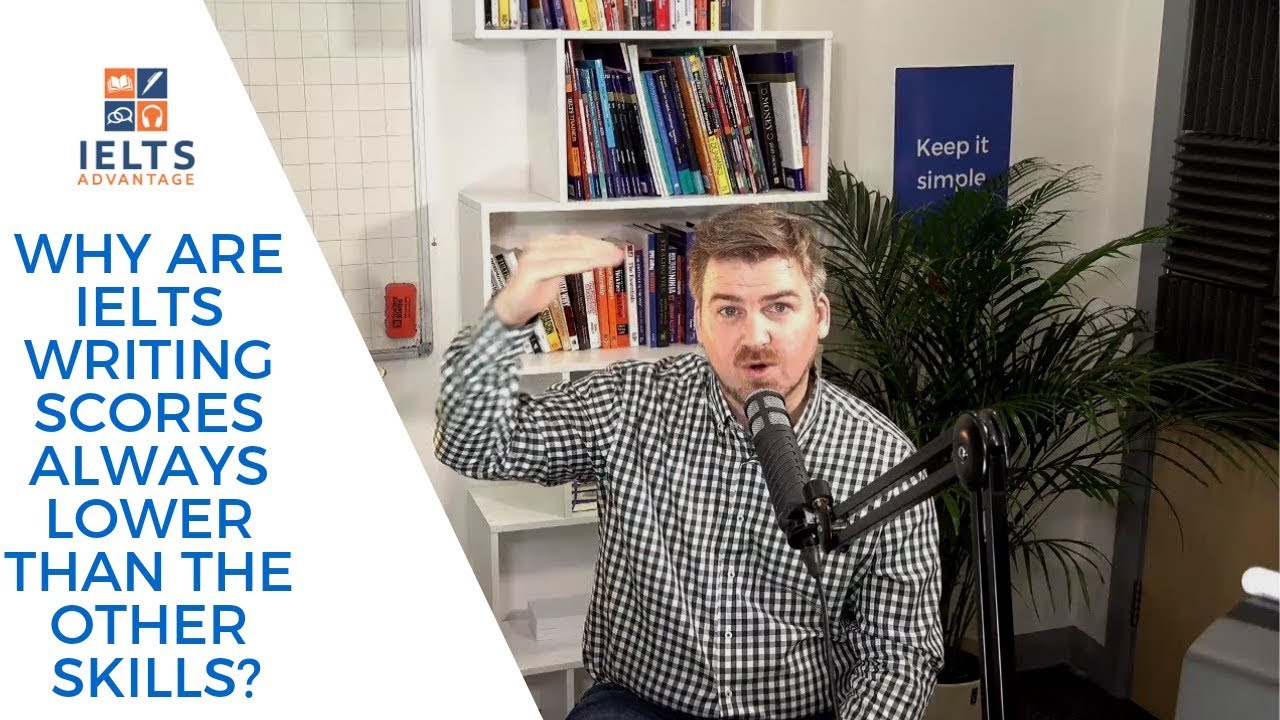Episode 21: The Differences Between a Band 6 IELTS Essay and a Band 9 IELTS Essay
Summary
TLDRIn this IELTS VIP podcast episode, the host addresses the common student misconception about what constitutes a Band 9 essay. They share an anecdote about how students often confuse Band 9 with Band 6 essays due to preconceived notions of essay writing. The host then explains the key differences between Band 6 and Band 9 essays, focusing on aspects like introductions, main body paragraphs, conclusions, and the four marking criteria: task achievement, coherence and cohesion, lexical resource, and grammatical range and accuracy. The discussion aims to help students understand the nuances of high-scoring essays and to challenge their preconceived ideas about essay complexity and vocabulary.
Takeaways
- 😀 The podcast is designed to help IELTS VIP students improve their scores by addressing their specific questions.
- 🧐 Students commonly request to see sample Band 9 essays to understand what high-scoring writing looks like.
- 📚 A common misconception among students is that complex language and high-level vocabulary automatically equate to a high score.
- 🔍 The instructor used an exercise where students had to identify Band 6 and Band 9 essays, often leading to confusion and incorrect assumptions.
- 📈 The exercise revealed that students' preconceived notions about essay writing were often incorrect and needed to be challenged.
- 📝 The key differences between Band 6 and Band 9 essays include clarity, coherence, and the effective use of language to convey meaning.
- 🗣️ Band 9 essays are characterized by clear positions, logical development of ideas, and the appropriate use of vocabulary and grammar.
- 🤔 Students often overuse discourse markers in an attempt to sound more sophisticated, which can detract from the clarity of their writing.
- 📖 The instructor emphasizes that understanding the specific requirements for different band scores is more beneficial than solely focusing on Band 9 essays.
- ✍️ The podcast concludes by encouraging students to focus on improving their own writing skills rather than trying to emulate the unattainable perfection of Band 9 essays.
Q & A
What is the purpose of the IELTS VIP podcast?
-The IELTS VIP podcast is designed to help VIP students improve their IELTS scores by discussing topics that these students are interested in, focusing on detailed explanations of IELTS writing aspects.
Why do students often confuse between a Band 6 and a Band 9 essay?
-Students often confuse between Band 6 and Band 9 essays because they have preconceived notions about essay writing and may associate complexity and high-level vocabulary with higher scores, even though this is not always the case.
What is the trick the teacher used to challenge students' preconceived ideas about essay writing?
-The teacher gave students two essays, one Band 6 and one Band 9, without labels, and asked them to identify which was which. This exercise was meant to challenge their assumptions and highlight the importance of understanding what truly constitutes a high-scoring essay.
How does the teacher describe the typical introduction of a Band 6 essay?
-The teacher describes the typical Band 6 essay introduction as vague, with high-level vocabulary and discourse markers, but it lacks a clear position or direct addressing of the question, thus serving no real purpose.
What are the key differences between the main body paragraphs of a Band 6 and a Band 9 essay?
-The main body paragraphs of a Band 6 essay tend to have multiple ideas and overuse of discourse markers, while a Band 9 essay has a clear topic sentence, fully develops the main idea, and uses evidence and examples to support it.
Why do students often misinterpret the use of discourse markers in essays?
-Students are often taught that using many discourse markers is a sign of a high-level essay, but the teacher clarifies that coherence and cohesion are about logical sequencing and clarity, not just the use of markers.
What误区 do students have regarding vocabulary in high-scoring essays?
-Students often believe that using 'big' or 'impressive' words is key to a high score, but the teacher explains that effective vocabulary is about appropriateness, accuracy, and the ability to convey meaning clearly.
How does the teacher differentiate between the grammar use in Band 6 and Band 9 essays?
-The teacher points out that while both Band 6 and Band 9 essays use complex sentences, the key difference is accuracy. Band 9 essays have correct grammar with few errors, whereas Band 6 essays have systematic errors that hinder meaning.
What advice does the teacher give about aiming for a Band 9 essay?
-The teacher advises against aiming directly for a Band 9 essay if it's not necessary for one's IELTS score goal, as it can be like trying to cook like a world-class chef without the necessary skills and experience.
Why is it important for students to understand the specific requirements for their target IELTS score?
-Understanding the specific requirements for one's target score helps students focus on improving their weaknesses and avoiding unnecessary complexity, which can lead to better and more efficient preparation.
Outlines

This section is available to paid users only. Please upgrade to access this part.
Upgrade NowMindmap

This section is available to paid users only. Please upgrade to access this part.
Upgrade NowKeywords

This section is available to paid users only. Please upgrade to access this part.
Upgrade NowHighlights

This section is available to paid users only. Please upgrade to access this part.
Upgrade NowTranscripts

This section is available to paid users only. Please upgrade to access this part.
Upgrade NowBrowse More Related Video

IELTS Task 2 Writing Band 9 Ultimate Guide 2024

IELTS VIP Podcast Episode 15: How Planning Can Help You Get the IELTS Score You Need

IELTS VIP Podcast: Why Are IELTS Writing Scores Always Lower Than The Other Skills?

IELTS VIP Podcast Episode 10: Should I Get my IELTS Test Remarked?

IELTS Writing task 2: agree or disagree essay

IELTS VIP Podcast: Top 10 IELTS Myths That Lower Your Score
5.0 / 5 (0 votes)